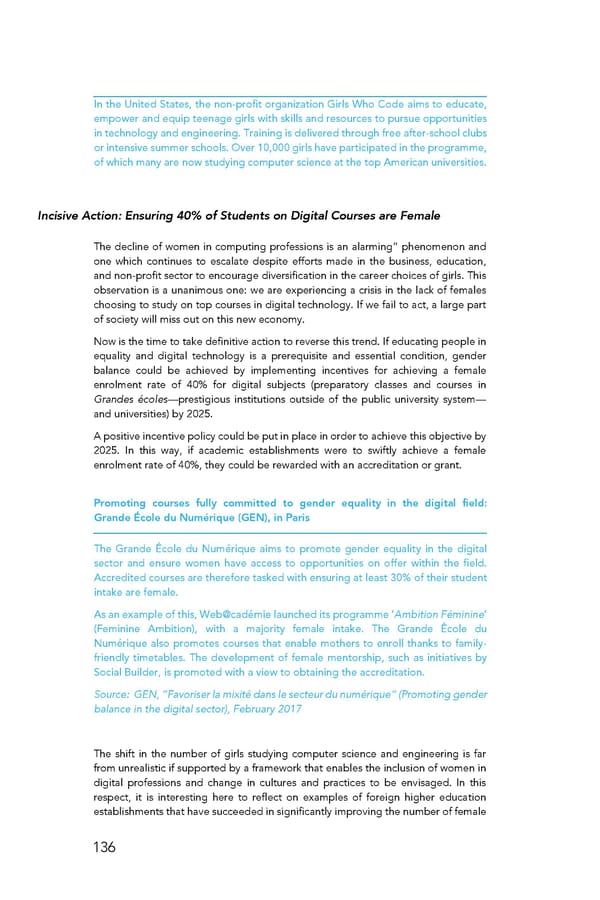In the United States, the non-profit organization Girls Who Code aims to educate, empower and equip teenage girls with skills and resources to pursue opportunities in technology and engineering. Training is delivered through free after-school clubs or intensive summer schools. Over 10,000 girls have participated in the programme, of which many are now studying computer science at the top American universities. Incisive Action: Ensuring 40% of Students on Digital Courses are Female The decline of women in computing professions is an alarming” phenomenon and one which continues to escalate despite efforts made in the business, education, and non-profit sector to encourage diversification in the career choices of girls. This observation is a unanimous one: we are experiencing a crisis in the lack of females choosing to study on top courses in digital technology. If we fail to act, a large part of society will miss out on this new economy. Now is the time to take definitive action to reverse this trend. If educating people in equality and digital technology is a prerequisite and essential condition, gender balance could be achieved by implementing incentives for achieving a female enrolment rate of 40% for digital subjects (preparatory classes and courses in Grandes écoles—prestigious institutions outside of the public university system— and universities) by 2025. A positive incentive policy could be put in place in order to achieve this objective by 2025. In this way, if academic establishments were to swiftly achieve a female enrolment rate of 40%, they could be rewarded with an accreditation or grant. Promoting courses fully committed to gender equality in the digital field: Grande École du Numérique (GEN), in Paris The Grande École du Numérique aims to promote gender equality in the digital sector and ensure women have access to opportunities on offer within the field. Accredited courses are therefore tasked with ensuring at least 30% of their student intake are female. As an example of this, Web@cadémie launched its programme ‘Ambition Féminine’ (Feminine Ambition), with a majority female intake. The Grande École du Numérique also promotes courses that enable mothers to enroll thanks to family- friendly timetables. The development of female mentorship, such as initiatives by Social Builder, is promoted with a view to obtaining the accreditation. Source: GEN, “Favoriser la mixité dans le secteur du numérique” (Promoting gender balance in the digital sector), February 2017 The shift in the number of girls studying computer science and engineering is far from unrealistic if supported by a framework that enables the inclusion of women in digital professions and change in cultures and practices to be envisaged. In this respect, it is interesting here to reflect on examples of foreign higher education establishments that have succeeded in significantly improving the number of female 136
 For a Meaningful AI - Report Page 134 Page 136
For a Meaningful AI - Report Page 134 Page 136